In the U.S., heart disease is the leading cause of death for men and women. It’s also the leading cause of death for people of most racial and ethnic groups in the country. The Centers for Disease Control and Prevention reports about one in every four deaths is attributed to heart disease each year.
Patients can present challenging heart problems, including the need for heart transplants. Therefore, it’s imperative to know where the best heart care programs are in each of the 50 states. In 2019, U.S. News & World Report ranked the best hospitals for cardiology and heart surgery in every state. For a hospital to be eligible for ranking, they had to treat at least 1,931 such Medicare inpatients in 2015, 2016 and 2017, according to the company.
To find out which hospital ranked number one in your state, check out the rankings down below.
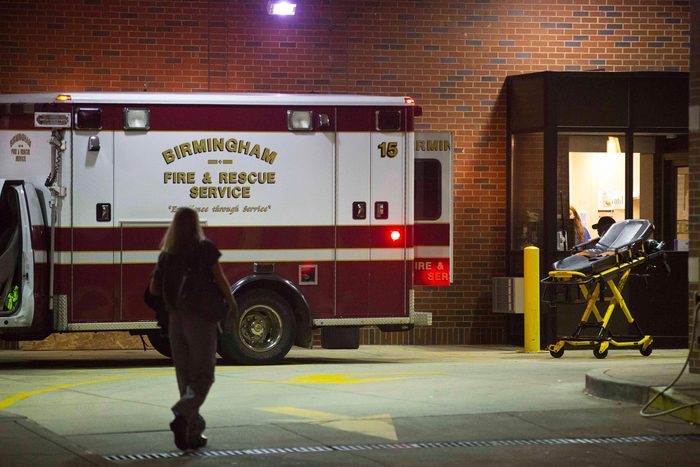
Alabama: University of Alabama at Birmingham Hospital, Birmingham
One of the four largest academic medical centers in the United States, UAB Hospital has a nationally-ranked cardiovascular care unit complete with a hypertension clinic and skilled transplant team. In fact, the teaching hospital performed the first heart transplant in the Southeast in 1981 and have successfully completed hundreds of others ever since.
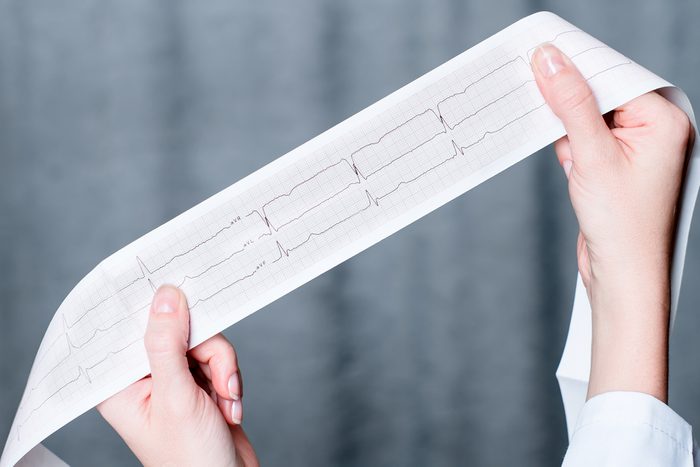
Alaska: Providence Alaska Medical Center, Anchorage
Treating more cardiovascular patients than any other facility in the state each year, the Heart and Vascular Center at Providence Alaska Medical has a strong focus on recovery and rehabilitation programs. Their licensed and expert staff also offer education on everything from nutrition to preventive care to weight management.
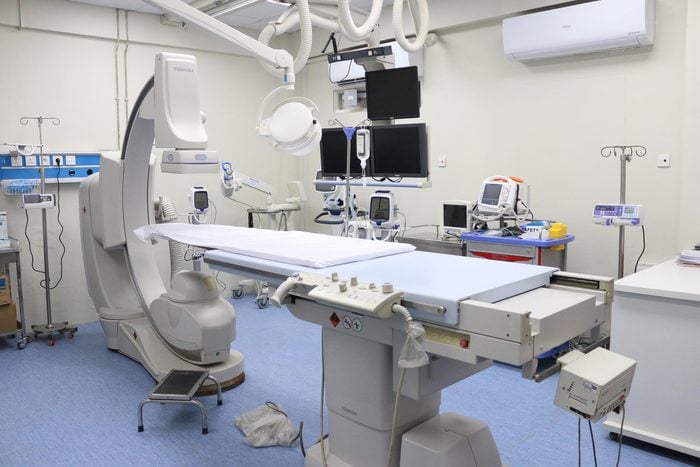
Arkansas: CHI St. Vincent Infirmary, Little Rock
The CHI St. Vincent Infirmary has consistently been ranked as a top-performing heart hospital by U.S. News and World Report since 2012 and is one of fewer than 20 medical centers in the country to receive Ace Accreditation for Cardiac Excellence for their state-of-the-art cath labs.
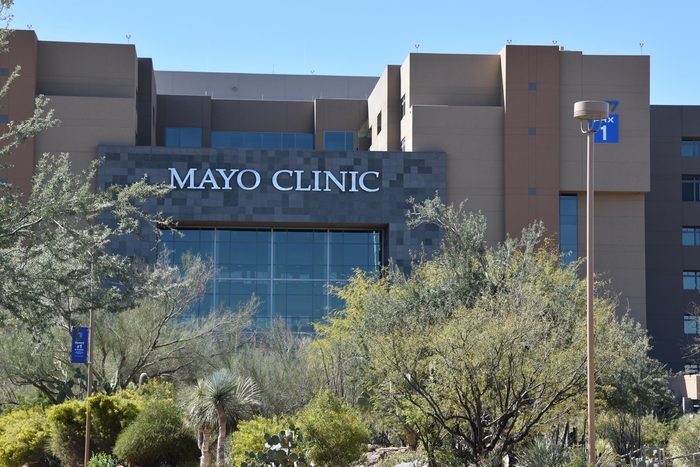
Arizona: Mayo Clinic-Phoenix, Phoenix
Part of the world-renowned Mayo Clinic health network, it’s no surprise that this medical center has also been deemed the number one hospital overall in the state of Arizona and number 11 in the country. Psst: Here are the worst pieces of advice for taking care of your heart that cardiologists have ever heard.
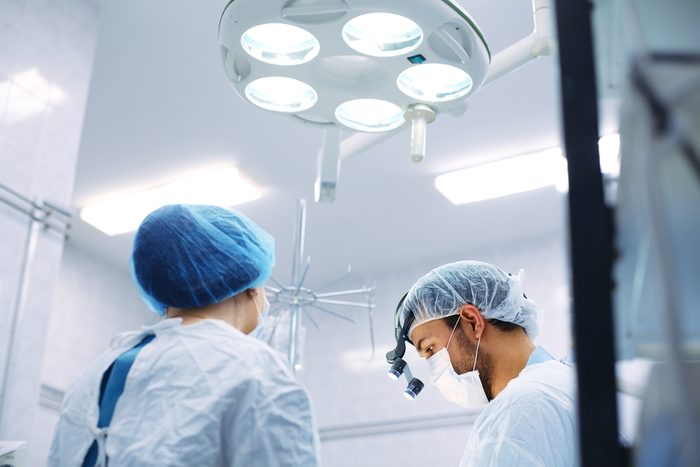
California: Smidt Heart Institute at Cedars-Sinai, Los Angeles
The doctors at Smidt Heart Institute know what they’re doing, particularly when it comes to two specific heart valve procedures: percutaneous mitral valve repairs and aortic valve replacements. They’ve performed more of those two types than any other hospital in the country. Want to avoid having a cardiac issue in the first place? Find out the best (and worst) diets for heart health.

Colorado: University of Colorado Hospital, Aurora
Not only is the Unversity of Colorado Hospital the official health care partner of the Denver Broncos and the Colorado Rockies, but its Heart and Vascular Center is one of the best facilities in the United States when it comes to cutting-edge research and innovative treatment. With a constant rotation of new clinical trials, patients often have the option to participate before they open to the rest of the public.
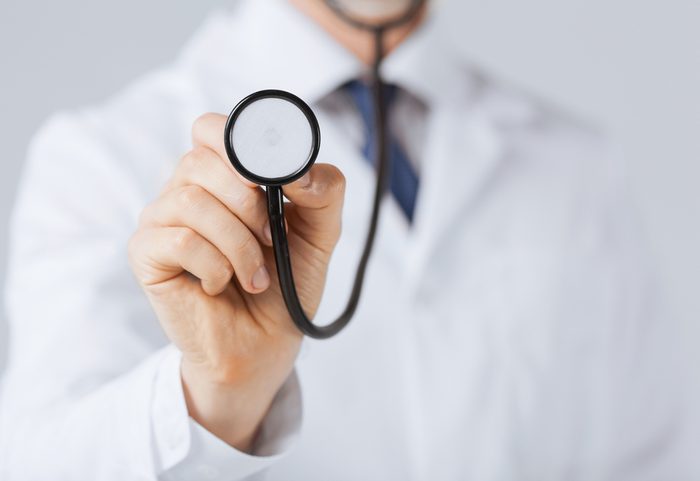
Connecticut: Yale New Haven Hospital, New Haven
The first medical center in the country to develop the artificial heart pump, Yale New Haven Hospital is also the official teaching facility of Yale University. And along with top-notch services, the talented team of nurses, doctors, and other medical experts provide emotional and mental support for both patients and their caregivers during every step of the process.
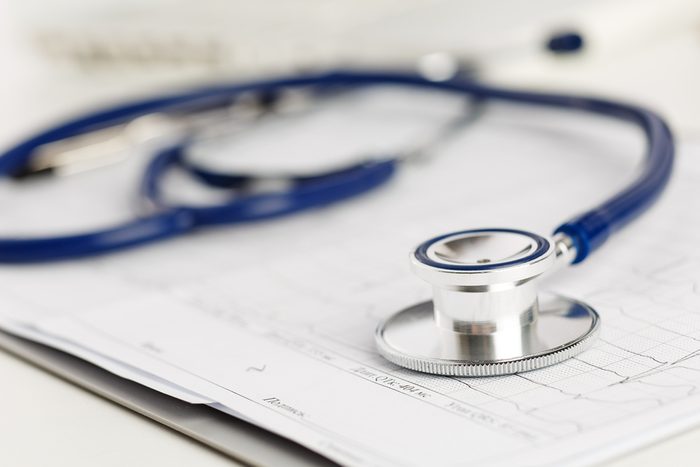
Delaware: Christiana Care Hospitals, Newark
You’ll have over 100 of the world’s leading experts in the field of cardiology at your fingertips when you walk into Christiana Care Hospital. It’s also the only medical center in the area that has vascular and cardiac surgery, radiology, and nephrology all in one facility (how convenient!). Worried about having heart disease yourself? Read these latest findings that could potentially save your life.
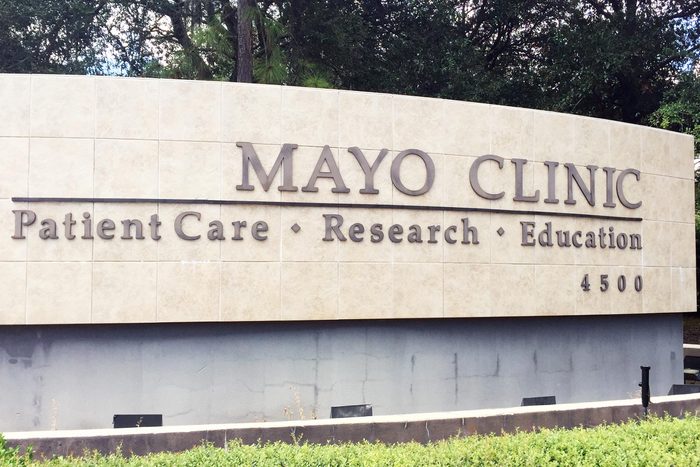
Florida: Mayo Clinic Jacksonville, Jacksonville
You know you’re in good hands when you book an appointment or a procedure at any hospital that’s part of the Mayo Clinic system. And this Jacksonville location is no different, landing at number 46 in the entire country for cardiology and heart surgery thanks to its vast network of resources and doctors at its disposal. Psst: Those expert cardiologists likely wish you knew these 25 things about heart health.
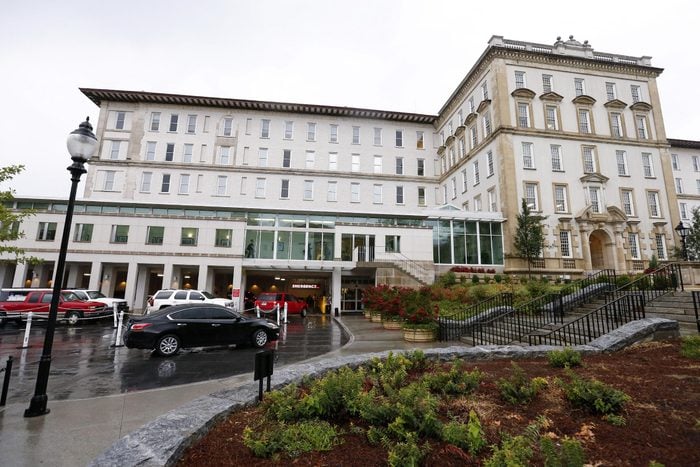
Georgia: Emory University Hospital, Atlanta
With most of its physicians and specialists coming from the Emory University School of Medicine, the Heart and Vascular Center in Atlanta is one of only a few medical facilities that use translational research (which incorporates both laboratory and clinical research) so they’re always at the forefront of new technologies and treatments. And research has found that this activity can lower your risk of a heart attack by up to 70 percent.
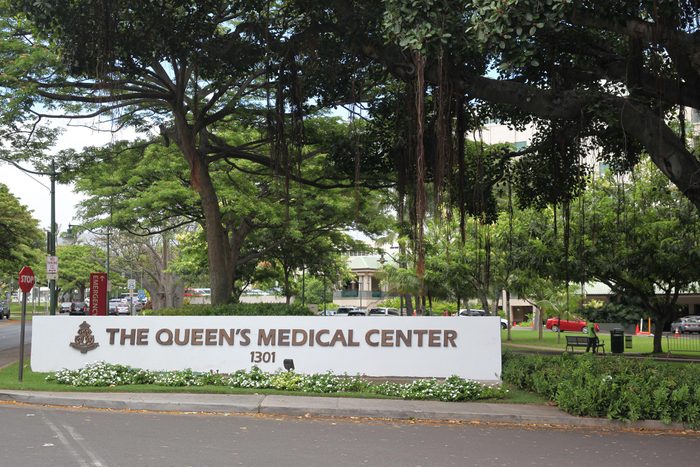
Hawaii: Queen’s Medical Center, Honolulu
Whether you just want a routine checkup or you have a serious condition that needs more intensive care or surgery, you’ll find it all at Queen’s. The largest cardiology group in the islands, the heart center at this Honolulu hospital has also received the American Heart Association’s Get With The Guidelines, Coronary Artery Disease Gold Performance Achievement Award.
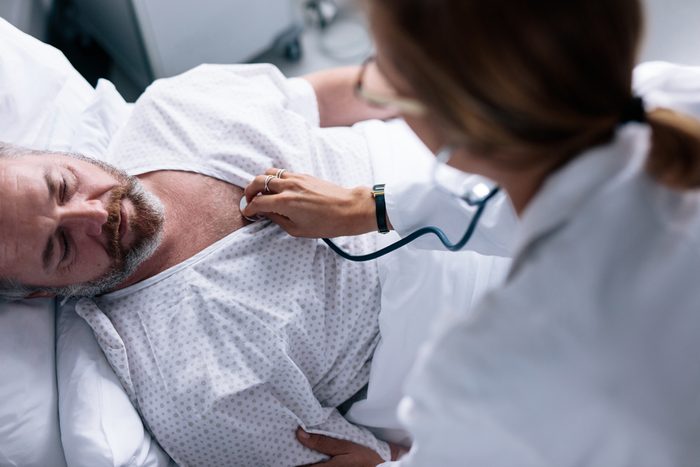
Idaho: St. Luke’s Regional Medical Center, Boise
St. Luke’s Regional Medical Center earned its top spot as Idaho’s best heart hospital primarily thanks to its high marks for patient safety. The center is incredibly dedicated to decreasing both the number of mistakes made by physicians and medical accidents. Here are 34 ways to survive your next trip to the hospital.
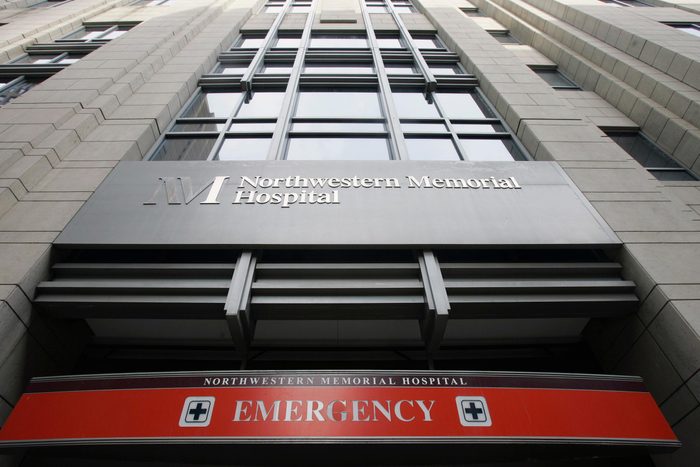
Illinois: Northwestern Memorial Hospital, Chicago
The highly respected Bluhm Cardiovascular Institute at Northwestern has every aspect of heart care covered with its six different specialty centers (Center for Coronary Artery Disease, Center for Heart Failure, Center for Heart Rhythm Disorders, Center for Heart Valve Disease, Center for Preventive Cardiology and Center for Vascular Disease). It also offers a unique program with its children’s hospital to transition heart patients from pediatric to adult care.
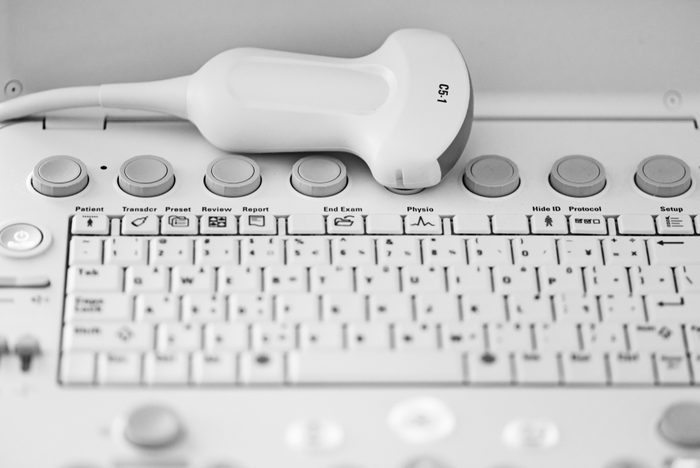
Indiana: Indiana University Health Medical Center, Indianapolis
Need proof that Indiana University Health Medical Center is one of the hospitals leading the world in heart health? How about this: They performed the first private cardiac transplant in the world, invented a cardioverter (an advanced defibrillator) that can be implanted into a heart, and even played a key role in developing the technology for heart ultrasounds.
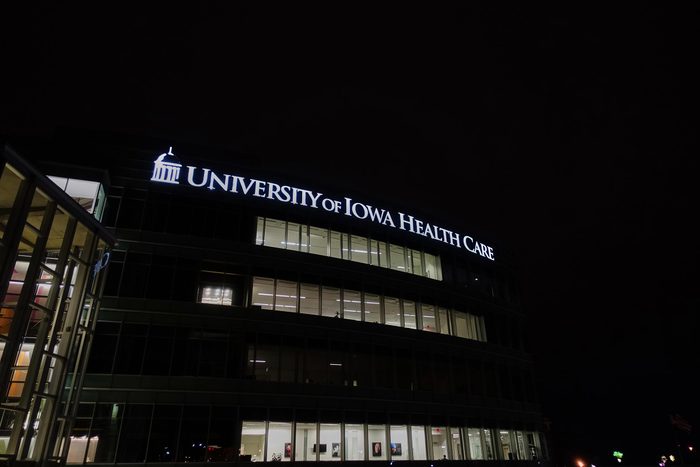
Iowa: University of Iowa Hospitals and Clinics, Iowa City
“Changing medicine. Changing lives.” That’s the motto at the Heart and Vascular Center at the University of Iowa Hospitals, a state-of-the-art facility that offers quality care. One perk is that new patients will be seen by cardiac specialists within 48 hours.
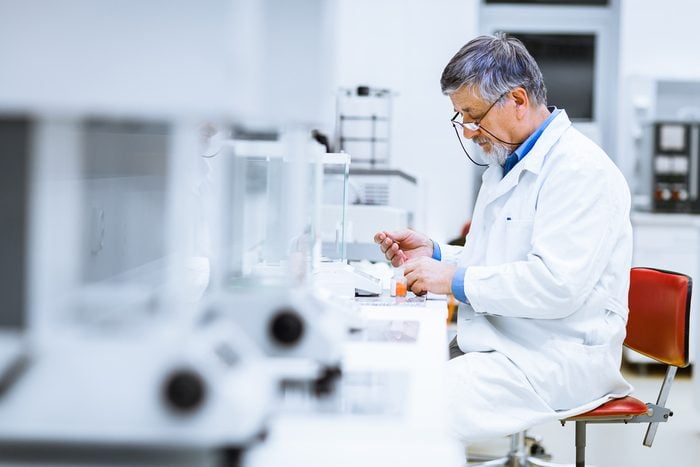
Kansas: University of Kansas Hospital, Kansas City
The first in the United States to receive Comprehensive Cardiac Center Certification from The Joint Commission, the University of Kansas Hospital provides a complete range of services, from prevention to rehabilitation and recovery. Want a head start on avoiding heart disease? Try these 45 healthy heart habits that cardiologists themselves follow.
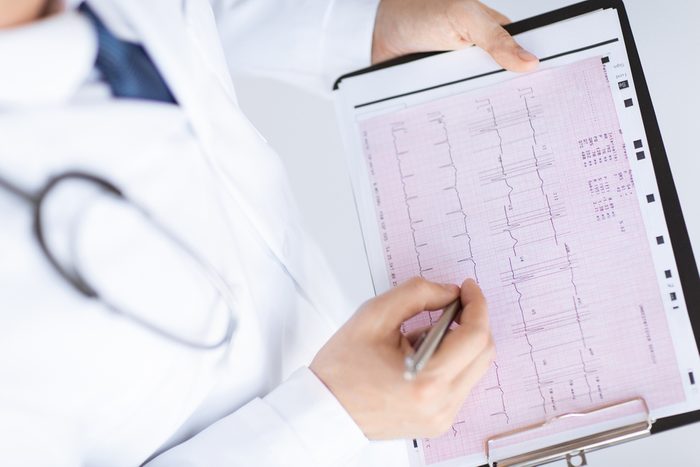
Kentucky: University of Kentucky Albert B. Chandler Hospital, Lexington
There’s an exciting new addition to the Gill Heart & Vascular Institute at the University of Kentucky: an entire floor dedicated entirely to heart care. With one of the largest cardiovascular intensive care units in the country (it has 32 beds!), it offers its patients the highest quality treatment.
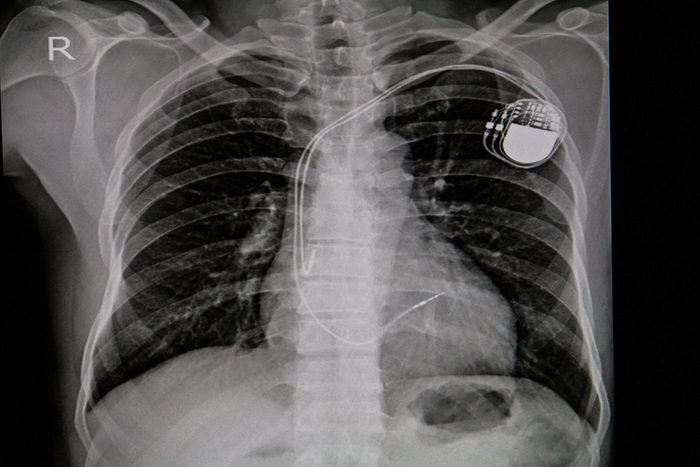
Louisiana: Ochsner Medical Center, New Orleans
Named after the famous heart surgeon Dr. John Ochsner, this New Orleans medical center is known for quality comprehensive care that includes one-on-one consultations with top doctors and personalized treatment plans for each patient. Ochsner also received five stars in pacemaker procedures for 2018 from Healthgrades.
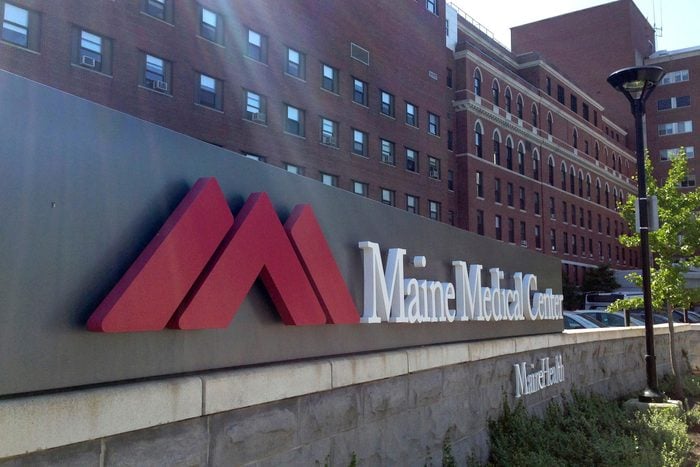
Maine: Maine Medical Center, Portland
The more volume a hospital has, the better the treatment that its patients receive. This is exactly what you’ll experience at Maine Medical Center, where its Heart Center doctors benefit from the shared knowledge and leading-edge technology that comes with being part of a larger healthcare network. Browse this guide to choosing the best physician, too, before you book an appointment.
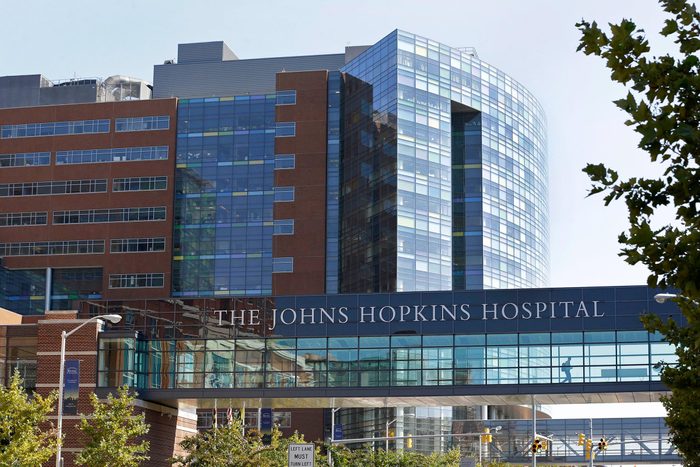
Maryland: Johns Hopkins Hospital, Baltimore
Everyone’s familiar with Johns Hopkins Hospital—and for good reason. Its world-class Heart & Vascular Institute, which is home to specialists in every branch of cardiovascular care, lays claim to plenty of firsts in the field of heart medicine, like the first domino heart transplant (one patient receives a heart and lung, and her original heart goes to another patient) in the United States and the first successful procedure to fix congenital heart defects in babies.
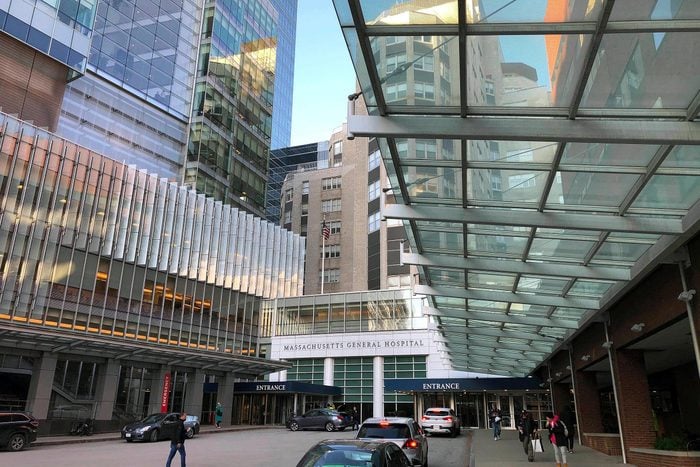
Massachusetts: Massachusetts General Hospital, Boston
A teaching hospital for Harvard Medical School, Massachusetts General Hospital takes a team approach to its heart care. That means that each of its 11 condition-specific programs at the Corrigan Minehan Heart Center has a dedicated group of physicians who specialize in that field and can provide the most thorough level of care and expertise.
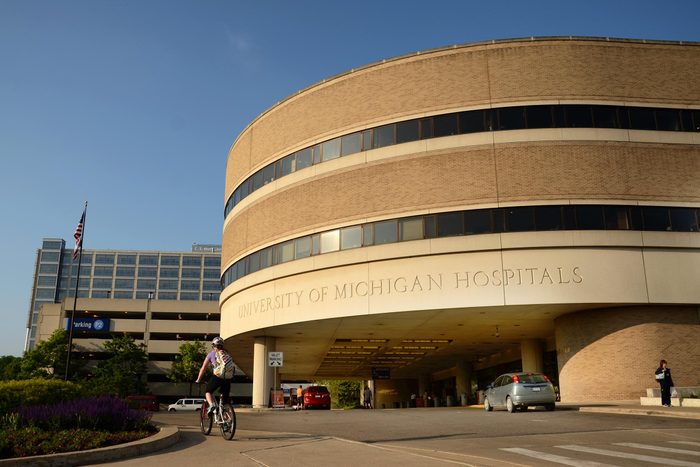
Michigan: University of Michigan Hospitals-Michigan Medicine, Ann Arbor
This Michigan medical center has more than earned its spot at number eight on the list of the country’s top heart hospitals. Some of its high marks were in survival—patients have a greater chance of surviving cardiac surgery—and nurse staffing, which means there are more nurses per patient so you’ll receive attentive compassionate care.
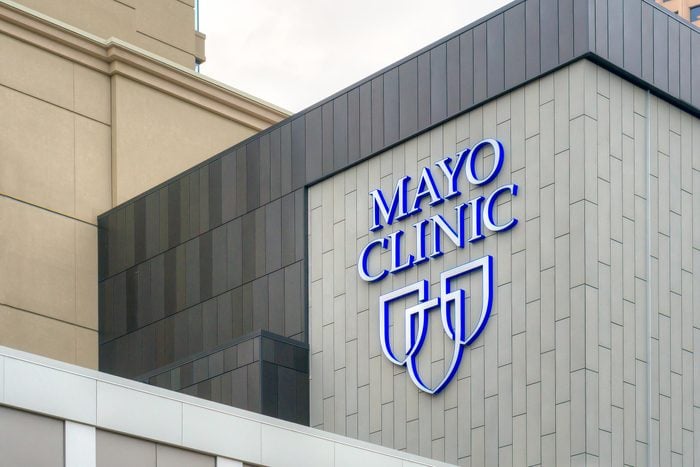
Minnesota: Mayo Clinic, Rochester
Named the best hospital in the entire nation by U.S. News and World Report, Mayo Clinic is known for having some of the highest-skilled doctors and nurses along with innovative treatment programs. While its team of cardiologists is particularly talented at treating rare and complex conditions, they’re also a great resource for routine checkups. Just come prepared for your appointment with this list of questions that doctors wish you’d ask them.
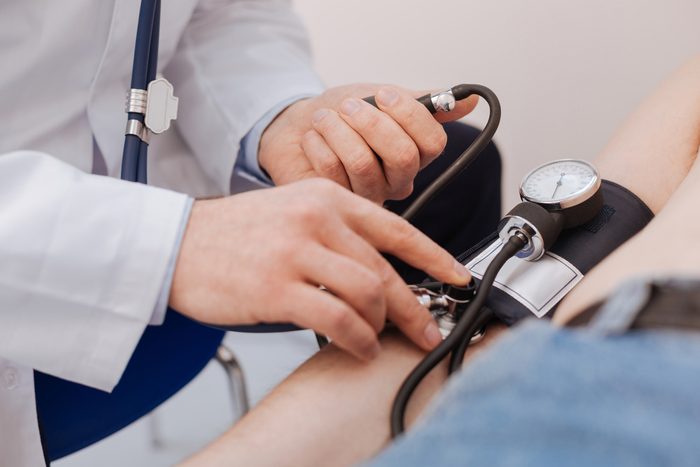
Mississippi: Baptist Memorial Hospital-Desoto, Southaven
According to Baptist Memorial, the rate of cardiovascular problems is higher among people who live in Southern states. This is why this Mississippi medical center offers some of the most convenient care, with all of its heart services under one roof. If you’re worried you might be on the road to poor heart health, here are easy ways to reduce your risk of heart disease (and stroke).
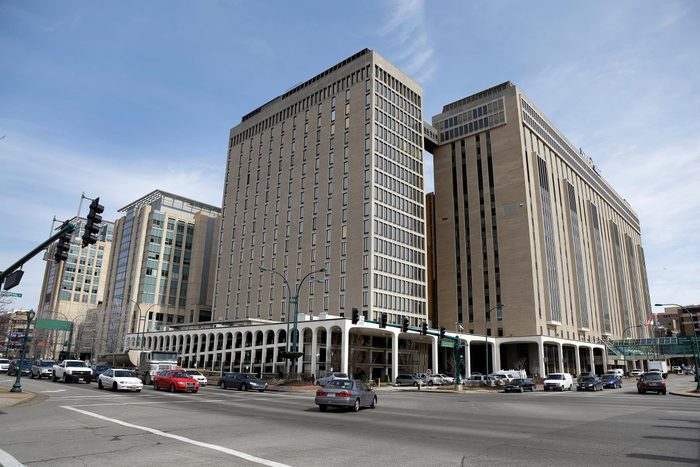
Missouri: Barnes-Jewish Hospital, St. Louis
What really sets Barnes-Jewish Hospital apart from the rest is its incredible commitment to the best patient care. Its Heart and Vascular team even outranked all other inpatient cardiac units in the country for patient satisfaction, meaning its staff works hard to make sure you feel cared for and respected throughout the process. Make your hospital visit even more comfortable with these top 12 tips for improving a hospital stay.

Montana: Billings Clinic, Billings
Small but mighty is the best way to describe Billings Clinic, where everyone from the receptionist to your personal cardiologist is dedicated to helping you get (and stay) healthy. Its on-site catheterization lab is open 24/7 so you have access to care whenever you need it. The cardiovascular clinic also offers educational services, like these 10 simple ways to boost your heart health.
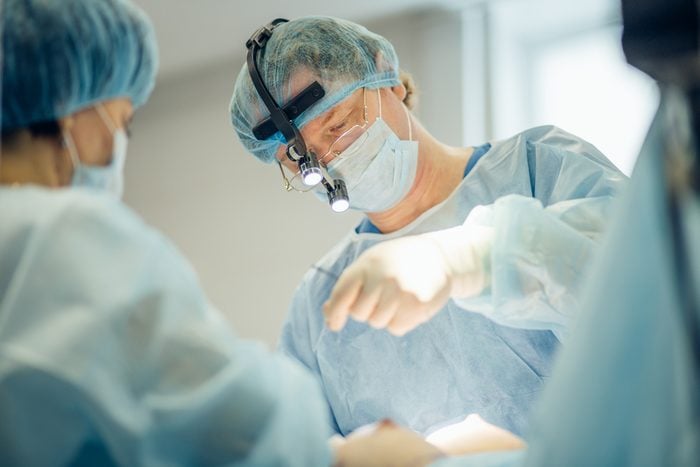
Nebraska: Nebraska Medicine-Nebraska Medical Center, Omaha
You’ll get the best of both worlds at this heart hospital, which combines top talent from both Nebraska Medicine and Nebraska Medical Center. Successfully implanting about 60 ventricular assist devices each year, it offers one of the largest such programs in the country and is also the only heart transplant center in the state.

Nevada: St. Mary’s Regional Medical Center, Reno
At St. Mary’s Regional Medical Center, the staff is understandably proud of its Heart Valve Center. It specializes in a minimally invasive procedure known as Transcatheter Aortic Valve Replacement. The facility, created to treat patients with heart valve disease, uses state-of-the-art technology and equipment to help improve patients’ quality of life. To check if you have a heart issue, keep an eye out for some of these common warning signs.
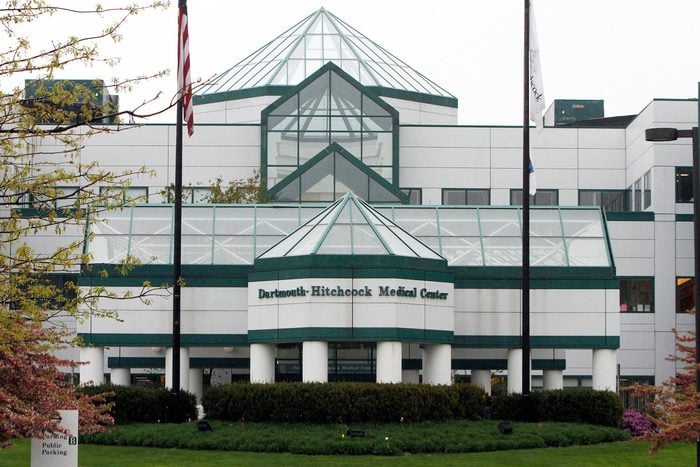
New Hampshire: Dartmouth-Hitchcock Medical Center, Lebanon
If there’s one thing Dartmouth-Hitchcock Medical Center does best, it’s treating heart attacks. Offering 24/7 care, the center’s heart attack mortality rate is less than 4 percent, one of the lowest in the United States. Here are 7 silent signs you could be having a heart attack and not even know it.
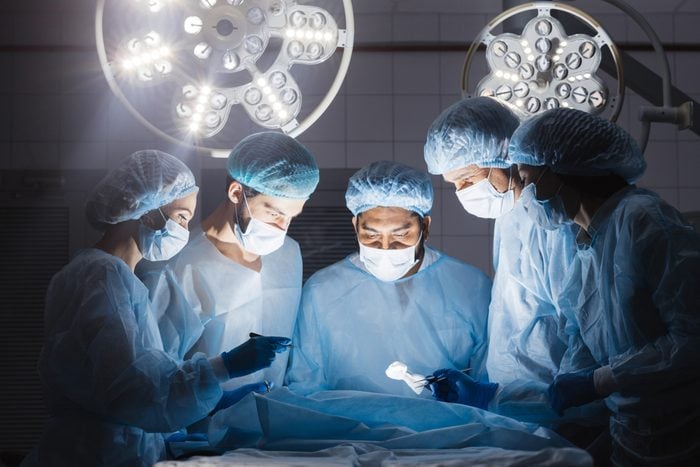
New Jersey: Morristown Medical Center, Morristown
The Morristown Medical Center, part of the Atlantic Health System, offers award-winning diagnostic and treatment services for cardiovascular care. Its specialty is open-heart procedures, which it performs more of than any other hospital in New Jersey; these procedures are done by some of the top cardiologists in the field.

New Mexico: Presbyterian Hospital, Albuquerque
With a focus on quality and patient safety, Presbyterian Hospital’s vascular unit holds itself to the highest standards and follows best practices. The team of experienced physicians is skilled in a range of specialties from general cardiology to electrophysiology, so no matter what your issue is, there is someone there who can help you.

New York: New York-Presbyterian Hospital-Columbia and Cornell, New York
Snagging the number three spot on the list of best heart hospitals in the country, New York-Presbyterian has three specialized heart centers, each providing holistic, world-class care to its patients. And fun fact: the center was the first hospital to perform pediatric heart transplant surgery. Here’s everything you need to know about heart defects in children, including how to detect them.
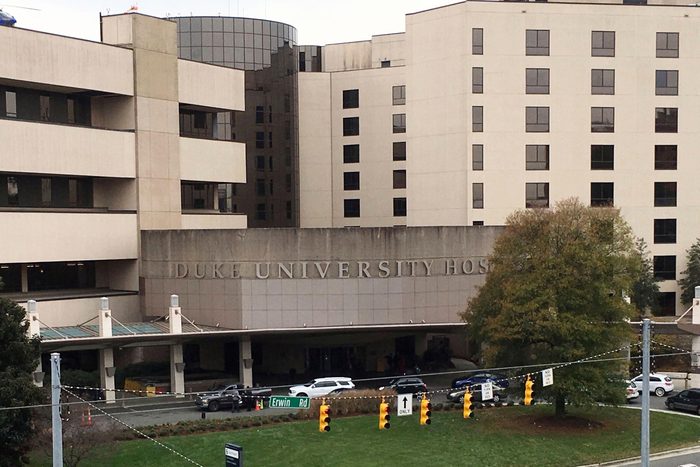
North Carolina: Duke University Hospital, Durham
Duke University is good at more than just basketball—it also has a fantastic heart care division of its hospital. One of its features is a heart attack response initiative, which is dedicated to providing emergency, life-saving care as quickly as possible. And if you’re interested in preventing heart disease, visit the Duke Diet and Fitness Center.

North Dakota: CHI St. Alexius Health-Bismarck, Bismarck
Don’t expect a one-size-fits-all treatment plan at CHI St. Alexius Health-Bismarck. Instead, you’ll sit down with a condition-specific team of physicians and experts to create a personalized plan for your cardiovascular care. Whether you require complex surgery or a less invasive, therapeutic treatment, they’ll be able to walk you through the process from start to finish.

Ohio: Cleveland Clinic, Cleveland
Meet the best heart hospital in the entire country for 24 straight years, according to U.S. News and World Report. The Miller Family Heart & Vascular Institute at the world-renowned Cleveland Clinic sees more cardiovascular patients than any other hospital in the United States, so you’ll have access to the largest network of talented doctors and technologies. For example: Cleveland Clinic created coronary artery bypass surgery.

Oklahoma: St. Francis Hospital, Tulsa
At the Heart Hospital at Saint Francis, the staff knows that quality care is about more than just the patient—it’s also about the family. Here you’ll find an open visitation schedule (meaning guests can see their family members at any hour of the day or night), comfortable waiting rooms and doctors who encourage families to be involved with their loved one’s treatment. Before you visit, read this guide to hospital etiquette (aka what not to do).

Oregon: OHSU Hospital, Portland
What makes OHSU Hospital the only one in Oregon to make it into the top 50 for cardiology and heart surgery? It could be their dedication to developing new treatments and technologies and constantly looking for new solutions to curing complex conditions. And it’s all led by the well-respected Sanjiv Kaul, MD, who invented the game-changing myocardial contrast echocardiography (MCE) technique, which detects early heart attacks (just like these tests do).
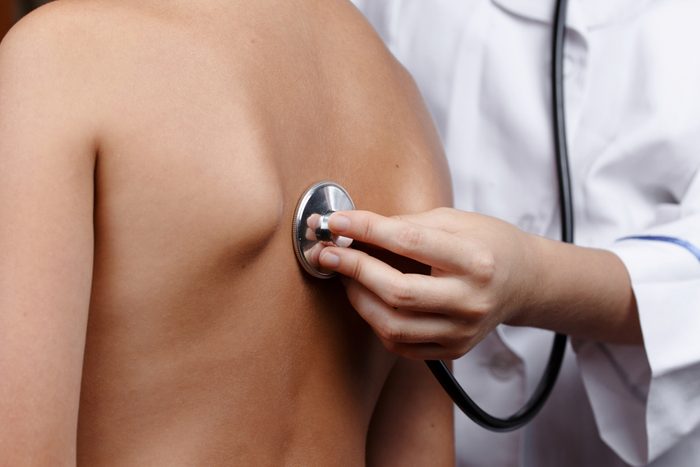
Pennsylvania: Hospitals of the University of Pennsylvania-Penn Presbyterian, Philadelphia
One of the highlights at this medical center (which was ranked the sixth-best heart hospital in the country) is the Penn Heart Failure Program. Earning the Gold Quality Achievement Award from the American Heart Association, it’s one of the largest programs of its kind in the United States. P.S. These are the most common symptoms of heart failure you should look out for.
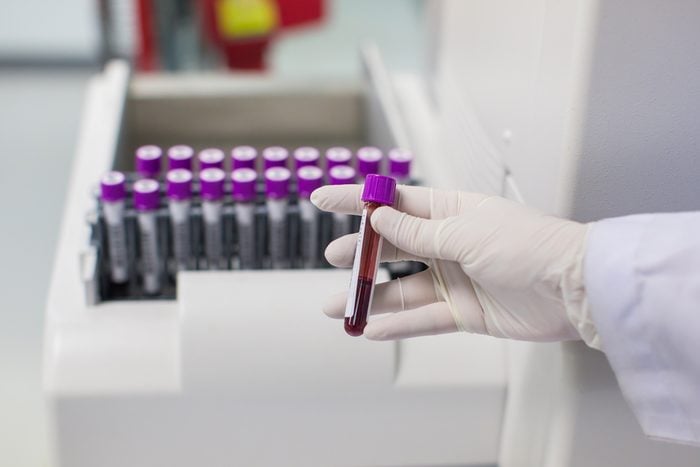
Rhode Island: Rhode Island Hospital, Providence
When it comes to what heart care services Rhode Island Hospital offers, the answer is all of them. The center has a comprehensive listing of programs and treatments from diagnostic testing and intervention to congenital heart disease management, all led by expertly-trained physicians who work together across disciplines to create the perfect plan for each patient.

South Carolina: MUSC Health-University Medical Center, Charleston
Want the most options for your cardiovascular care? Then you’ll want to visit MUSC Health-University Medical Center, where they offer more treatment choices and heart specialists than any other hospital in the state. Bonus: Their readmission rates and rates of medical complications are well below the national average. Reduce your risk of readmission by following these 15 easy tips for preventing heart disease.
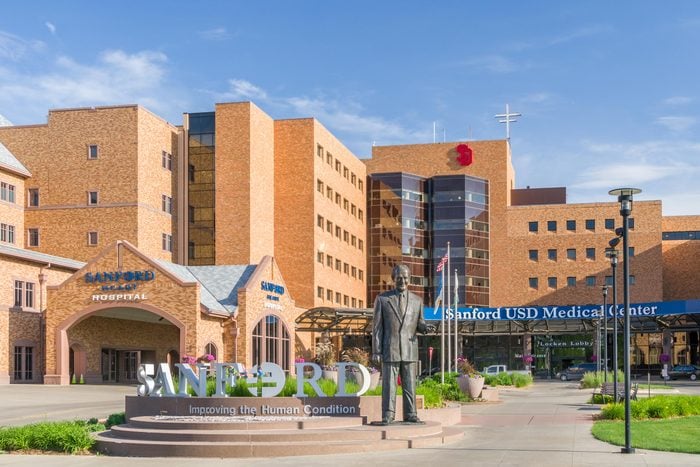
South Dakota: Sanford USD Medical Center, Sioux Falls
Adults aren’t the only ones who will benefit from this South Dakota hospital‘s heart center, which is made up of nationally-recognized cardiologists, surgeons, and researchers. It also has its own pediatric cardiology unit, dedicated solely to treating children with heart defects and diseases using some of the most advanced technologies available.
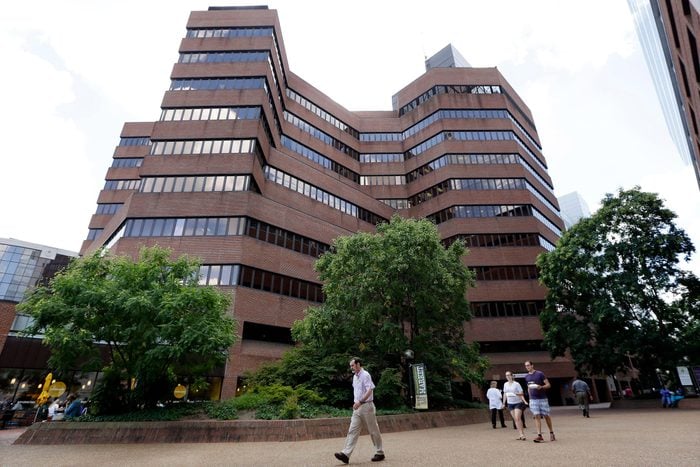
Tennessee: Vanderbilt University Medical Center, Nashville
As the number one hospital in Tennessee, Vanderbilt University Medical Center has a strong heart and vascular unit equipped with leading-edge technology (they have a team of researchers constantly developing new solutions) and top physicians. They also offer a women’s heart group which offers peer-to-peer support and guidance. In case you were wondering, here’s exactly how heart disease is different for women.
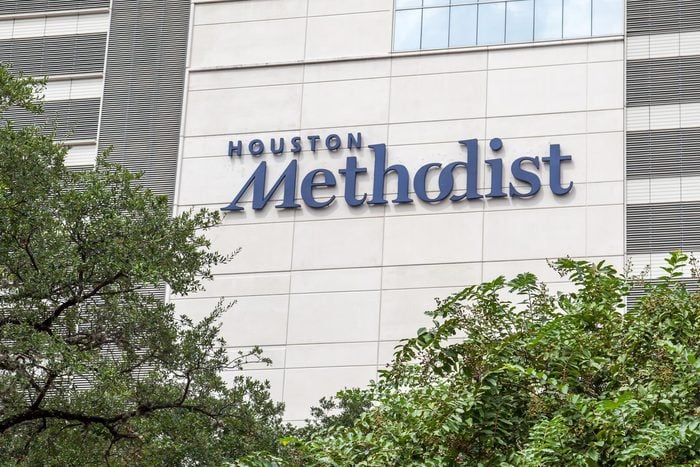
Texas: Houston Methodist Hospital, Houston
Everything’s bigger in Texas, including the DeBakey Heart & Vascular Center at Houston Methodist, making it the only nationally-ranked hospital in the state for cardiology. Just look at some of the numbers: More than 100 clinical trials currently in the works, more than 125 highly-skilled heart specialists, ten operating rooms, 43 heart transplant beds—you get the idea.
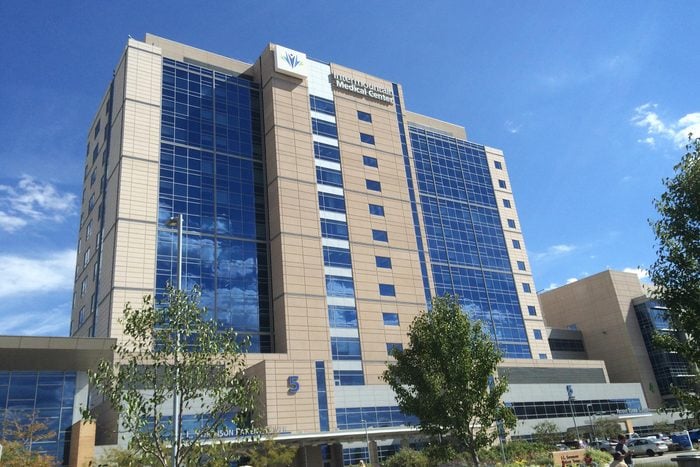
Utah: Intermountain Medical Center, Murray
Communication is key when it comes to a good doctor-patient relationship. The team at Intermountain Medical Center understands that, which is why they’re committed to answering all of your questions clearly, holding your hand throughout the entire treatment process and creating a unique plan for your heart care that you feel both confident and comfortable with. Watch out for these 11 silent signs of heart disease.

Vermont: University of Vermont Medical Center, Burlington
While the University of Vermont Medical Center provides its heart patients with high-quality care from world-class cardiologists, it’s also incredibly focused on innovation, research, and education. The team of medical experts and researchers are constantly seeking new and more effective solutions for preventing and curing heart diseases, so you’ll be treated to some of the most leading-edge treatment and technology.
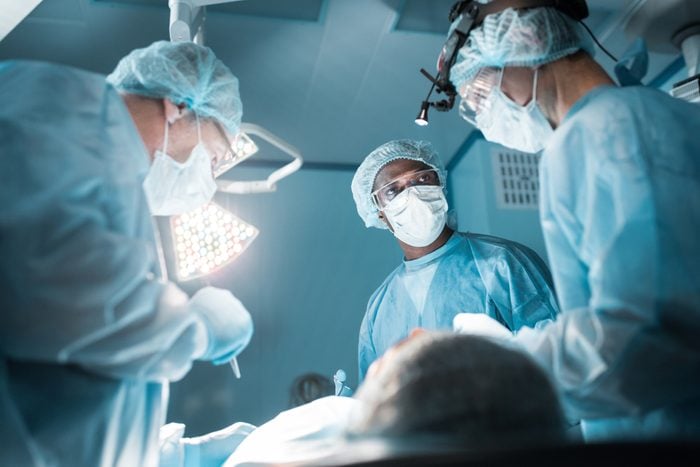
Virginia: Sentara Norfolk General Hospital-Sentara Heart Hospital, Norfolk
People travel from all over to Sentara Heart Hospital, where its cardiology and heart surgery program has been ranked in the top 50 in the country for 17 straight years. It’s primarily thanks to its comprehensive care offerings ranging from diagnostics and imaging (there are six catheterization labs onsite) to surgical procedures. Looking for healthy heart advice? Here are 15 of the top ways to prevent a heart attack, particularly for women.
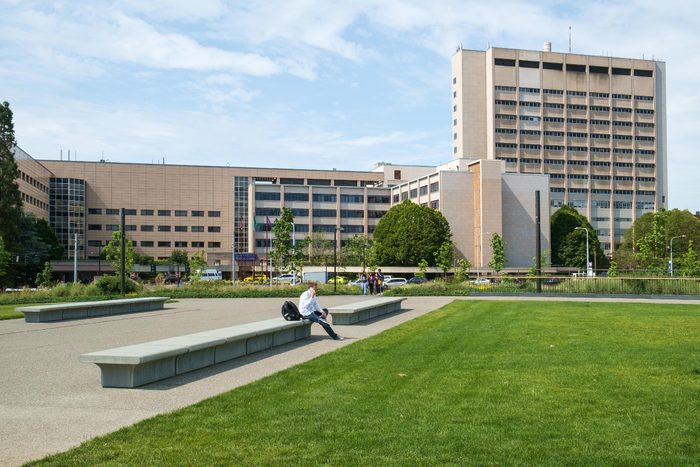
Washington: University of Washington Medical Center, Seattle
One of the things that make the University of Washington Medical Center so amazing, especially when it comes to cardiovascular care, is its ability to connect its highly-rated medical school with its innovative research arm. The combination means that the heart department is able to provide superior patient treatment with cutting-edge solutions that are continuously being improved by researchers.

West Virginia: Charleston Area Medical Center, Charleston
The number one priority at the Heart Center at this West Virginia hospital is its patients. According to its website, the staff of skilled physicians, surgeons, nurses and other experts are devoted to providing heart treatment that’s “dependable and accessible” through quality and compassionate cardiovascular care.

Wisconsin: Aurora St. Luke’s Medical Center, Milwaukee
Behind every strong hospital is an even stronger team of doctors and medical staff. That’s exactly the case at Aurora St. Luke’s Medical Center, where its cardiologists and surgeons are some of the most skilled in the world, particularly at minimally invasive techniques and heart transplants. No matter what you’re getting done, you can trust you’re in good hands here.

Wyoming: Wyoming Cardiopulmonary Services, Casper
Although there isn’t a heart hospital singled out by US News and World Report for this state, Wyoming Cardiopulmonary Services ranks high among its patients. “The doctors and staff here are nothing short of AMAZING,” raves one Google reviewer. The center also landed one of the American College of Cardiology’s Platinum Achievement Awards for 2018. Now, read on for the 50 secrets hospitals don’t want to tell you.